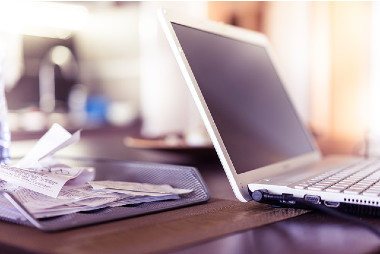Planning for retirement can feel daunting — especially when you know that once you stop…
How long should I keep my tax records for?
 What is a record
What is a record
Records are written evidence of your income or expenses that can either be in paper or electronic form. These records are important documents that are used for doing your tax during the income year.
In most cases these records are to be kept for 5 years from the date you lodge your tax return. This may include income statements, payment summaries and receipts.
Records for payments you receive
For income you receive from salary, wages, allowances, government payments or pensions and annuities your records may include:
- your income statement if your employer reports to the ATO through single touch payroll (STP)
- your Pay as you go (PAYG) payment summary
- a signed letter or statement from the payer that provides the same information as an income statement or payment summary
- your PAYG payment summary – superannuation income stream
For income you receive from interest or managed funds, your records or evidence may include:
- statements, passbooks or other documents from your financial institution that show the amount of interest you receive
- statements or advice from managed funds that show the amount of your distribution, primary production or non-primary production income, any capital gain or losses, any foreign income or your share of any credits, such as franking credits.
Records for expenses
Most expenses require a receipt or similar document as evidence. To claim a deduction for a work-related expense, as an employee:
- you must have spent the money and you weren’t reimbursed
- the expenses must directly relate to earning your income
- you must have a record to prove it (usually a receipt)
You will also need to show how the expenses relates to earning your income. Refer to the ATO website for more information about the records for expenses to keep or contact our office on (03) 9848 5933.
A deduction can only be claimed for the work-related portion of an expense. Any portion of the expense that isn’t directly related to earning your income or is for private use cannot be claimed as a deduction.
Any work-related expense over $300 must have written evidence to support the claim.
Records for assets
If you acquire a capital asset and sell the asset in the future you may make a capital gain or capital loss. To ensure you don’t pay more tax than necessary, keep all of your records from when you purchase the asset.
This also includes income you receive from an investment property or dividends from shares.
For more information about the specific records for assets to keep, refer to the ATO website or contact our office on (03) 9848 5933.
Format of your records
Records to keep can either be in paper or digital format and must be a true and clear copy of the original. We also recommend you keep a back-up of all your digital records.
A receipt must show the following:
- name of the supplier
- amount of the expense
- nature of the goods or services
- date the expense was paid
- date of the document
The importance of keeping records
Keeping good records helps you and your tax agent:
- to provide written evidence of your income and expenses
- prepare your tax return
- to ensure you can claim all your entitlements
- prove the information you provide in your tax return (in case you need to verify with the ATO)
- reduce the risk of tax audits and adjustments
- improve communication with the ATO
- resolve issues that relate to a dispute of your assessments or adjustments
- avoid exposure to penalties.
Keeping good records can reduce the cost of managing your tax affairs by reducing the time your tax agents sorts and prepares your records.
Keeping digital records with myDeductions
The ATO’s myDeductions tool is an online record keeping tool you can use to keep track of your records digitally. The ATO will recognise documents stored digitally including photos of your receipts as records.
The myDeductions tool allows you to keep your records for:
- all work-related expenses (including car trips)
- interest and dividend deductions
- gifts or donations
- costs of managing tax affairs
- sole trader expenses and business income
- other deductions
For more information, refer to the ATO website or contact or office on (03)9848 5933.
Source: www.ato.gov.au



